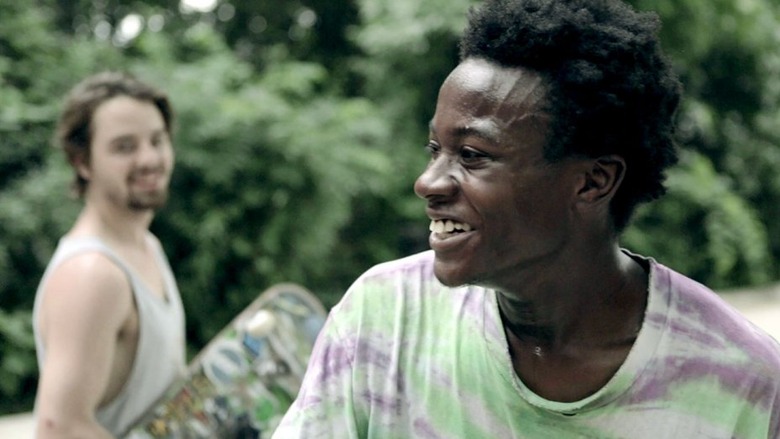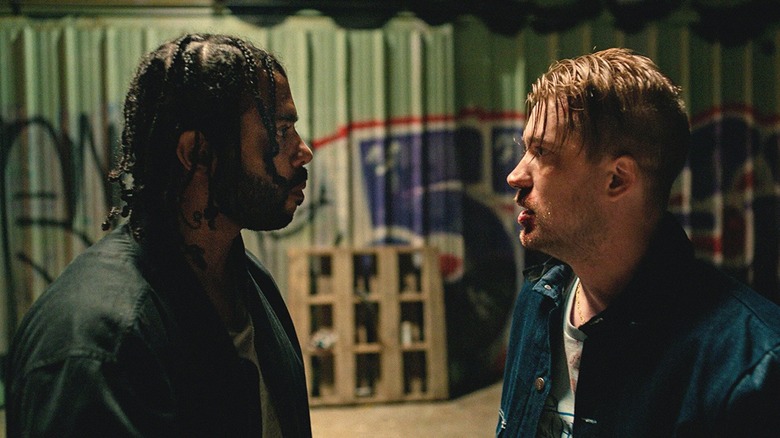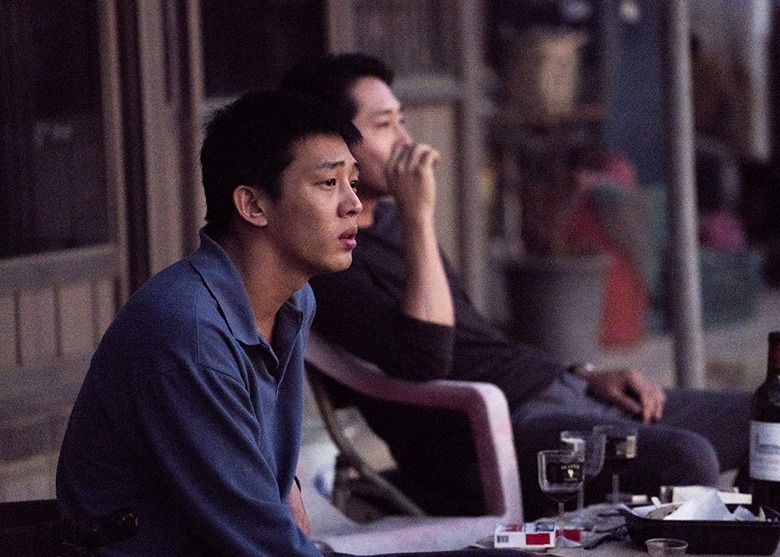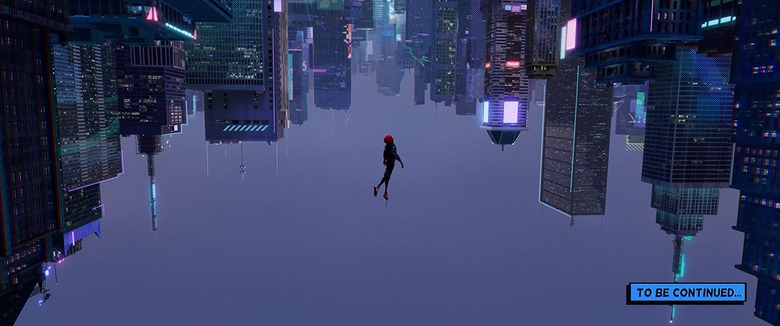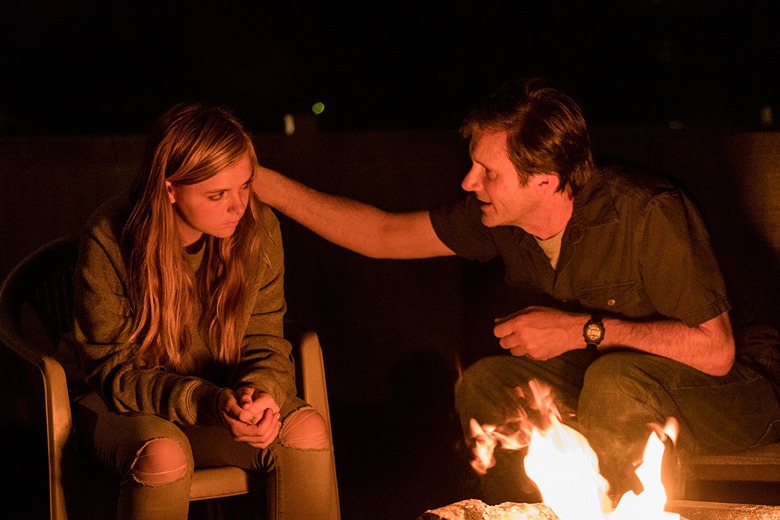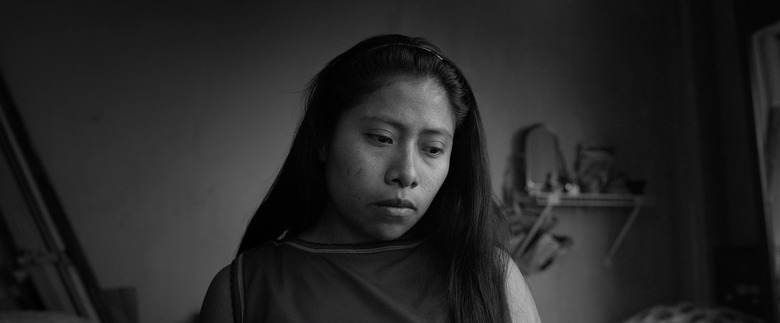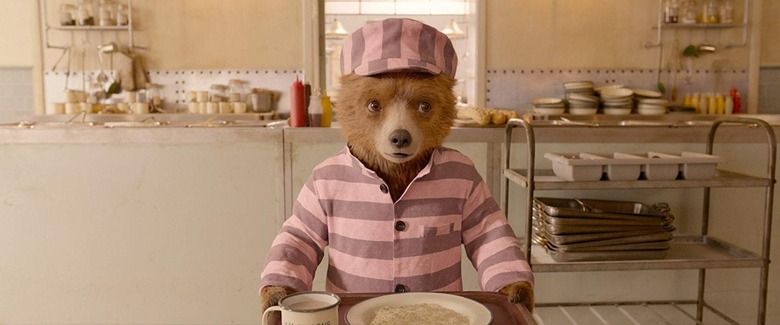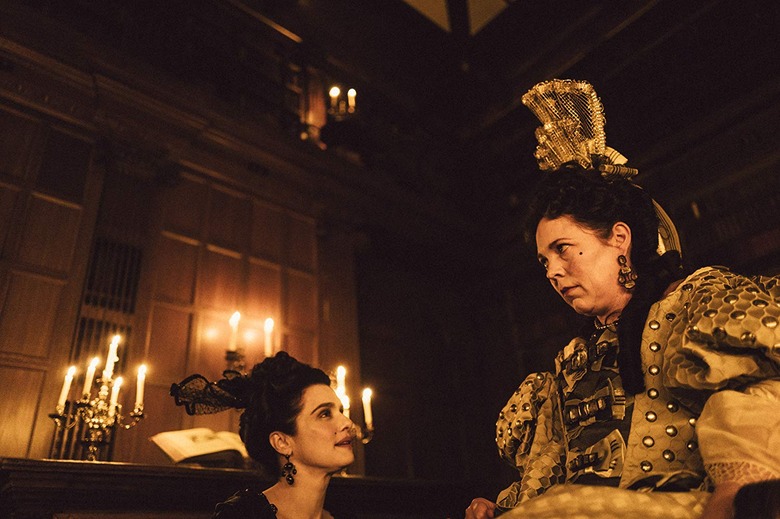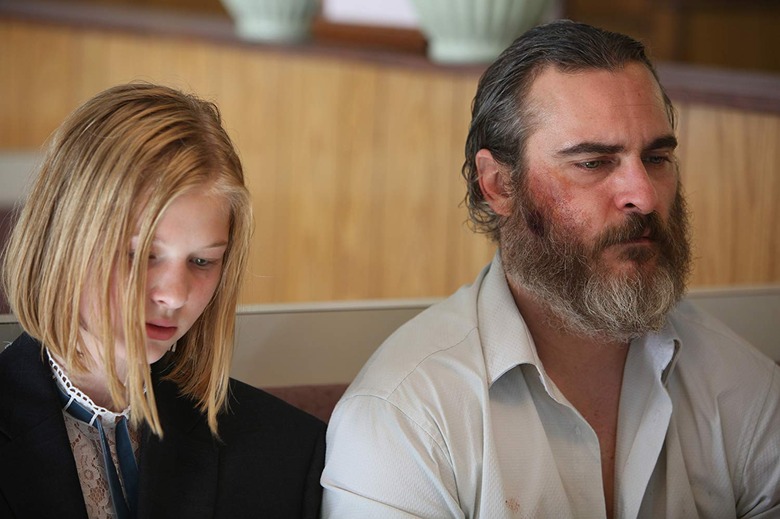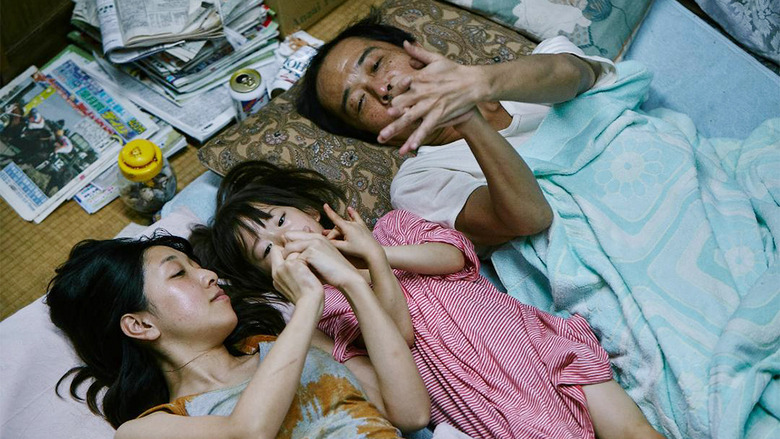Hoai-Tran Bui's Top 10 Movies Of 2018
2018 has come and gone, and we're 84 years older for it. But enough of my opining about what a terrible year it was (you'll probably get plenty of that in everyone else's pieces). I'm here to talk about the things I loved in 2018, and that was movies. I don't ascribe to the belief that there are "good" or "bad" years for movies, there are just the movies that personally speak to you every year. And while that number can swell or dwindle each year, there will at least be a couple that unquestionably leave an impact. And for me, there are plenty, including my honorable mentions Leave No Trace, Mirai, Happy as Lazzaro, First Reformed, and Black Panther.
Now let's get to what you really want to know: Here are my top 10 movies of 2018.
Hoai-Tran Bui's Top 10 Movies of 2018
10. Minding the Gap
It's incredibly rare for me to even watch a documentary, much less include one in my top 10 list, but Minding the Gap burrowed its way into my mind and refused to leave. Director Bing Liu compiles 12 years worth of footage in this incredibly intimate documentary, which traces the lives of two skateboarders, the charismatic Zack and the empathetic Keire, who he grew up alongside in a forgotten Illinois town in the Rust Belt. What at first seems a meandering, slice-of-life feature turns into a delicate commentary on the cycles of abuse and economic angst that control these young men's lives, including Liu himself. Liu depicts with a deft and lyrical hand how he and his two friends turn to skateboarding as therapy, but are forced to contend with the stormy realities of adult life. It's all the more affecting because of the unfettered access that Zack and Keire give Liu to their personal lives, which when woven with the grainy footage that Liu shot as a teenager, becomes a beautifully ragged snapshot of modern-day masculinity.
9. Blindspotting
"You monsters got me feeling like a monster in my own town." That's the powerful line that punctuates Collin's (Daveed Diggs) powerful soliloquy to a white police officer who he had witnessed shoot a black man during a chase through the streets. It's a soliloquy delivered by rap — a seemingly strange stylistic choice in an otherwise grounded film about gentrification. But it totally works as the cathartic release of rage that had been building in Collin as we follow him through the final days of his probation. Diggs and Rafael Casal co-wrote the screenplay for Blindspotting, which feels as much a love letter to their hometown of Oakland as it is a thought-provoking character study of a man grappling with racial injustice and his changing relationship with his hot-tempered white friend (Casal) unaware of his own privilege. Diggs gives an explosive performance in a role that straddles the line between fanciful and realistic, while gamely shouldering the heavy tension that permeates the film.
8. Burning
A beguiling portrait of obsession and class hostility, Burning is Vertigo for the modern age. That's a tall comparison, I know, but Lee Chang-dong's unsettling psychological drama is more than worthy of it. Based on Haruki Murakami's short story Barn Burning, the South Korean film follows a young working class man Lee Jong-su (Yoo Ah-In) who becomes obsessed with a former a childhood neighbor Shin Hae-mi (Jeon Jong-seo). Though he doesn't recognize her at first, they embark on a swift and short-lived love affair before Hae-mi suddenly declares that she is traveling to Africa. But upon her return, he discovers her in the arms of a suave stranger, Ben (a brilliantly enigmatic and chilling Steven Yeun), who goads Jong-su with the unnerving reveal that he burns down greenhouses in his spare time. Burning operates in the realm of uncertainty, steadily picking away at the threads of truth until you're left unsure of your own reality. It's the most approximate cinematic realization of the surreal magical realism of a Murakami story that I've ever seen, and a haunting meditation on the icy depths of paranoia.
7. Spider-Man: Into the Spider-Verse
Comic books come to stunning, kaleidoscopic life in Spider-Man: Into the Spider-Verse, Sony's animated superhero movie that looks unlike anything we've seen before. Directed by Peter Ramsey, Robert Persichetti Jr., Rodney Rothman, and written by Rothman and Phil Lord, Into the Spider-Verse manages to avoid being a kitchen-sink visual experiment and instead becomes a testament to the limitless potential of animation. But Into the Spider-Verse wouldn't be nearly as compelling to watch if it weren't for the rousing story at the center. Into the Spider-Verse follows Miles Morales (Shameik Moore) as he's bitten by a radioactive spider that bestows upon him super spider-like ability. The only problem: there's already another Spider-Man. And another. And another. Miles finds himself at the center of a universe-altering event that crashes several parallel dimensions into each other, landing alternate Spider Heroes into Miles' world with only one way to return: by teaming up. Despite the crowded ensemble of characters (each capable of leading their own film), Into The Spider-Verse never veers away from Miles' vibrant, heartwarming story arc, which gets to the emotional core of what a great Spider-Man movie — nay, a great superhero movie — should be.
6. Eighth Grade
In his directorial debut, Bo Burnham comes out of the gate with a masterpiece on adolescent angst. Heartfelt and endlessly charming, it's not hyperbolic to call Eighth Grade a horror movie. In fact, Eighth Grade may be one of the hardest movies to watch this year, simply because of how horrifyingly real it is. The film chronicles the trials of 13-year-old Kayla (Elsie Fisher), an awkward eighth grader struggling with anxiety and the pressures of social media. Fisher gives an earnest, radiant performance as the tenacious Kayla, who optimistically posts motivational videos that get no views, braves a pool party where she knows no one, or attempts to chat up the popular girls who won't give her the time of day. She's such a sympathetic character that it makes her stumbles all the more painful to watch — because despite this film's solidly Gen-Z setting, it's a wholly universal coming of age story.
5. Roma
Watching Roma is like plugging directly into someone's memories, so crisp and warm and inviting is Alfonso Cuarón's masterpiece of cinema. The Gravity and Children of Men director has crafted a pure cinematic experience out of his own childhood growing up in 1970s Mexico, telling the story of a housekeeper (Yalitza Aparicio) working for a middle-class family in Roma. At once impossibly sprawling and achingly intimate, Roma's narrative is exceedingly spare, moving at a slow and deliberate pace. But Cuarón makes it clear that this is a master at work: every scene is meticulously staged, every frame gorgeously rendered. Anchored by a tender performance by Yalitza Aparicio as Cleo, Roma is a painfully human film that carries you through a sea of half-remembered memories, before you're struck by the powerful emotional climax that will leave you sobbing.
4. Paddington 2
Paddington 2 was not only the sorely needed balm for the soul in the hellscape that was 2018, it's a near-perfect movie. Paul King's effervescent sequel to 2015's enchanting Paddington transcended what a family film is expected to be, delivering a zippy, visually stunning film that evokes both Wes Anderson as well as the gauzy pages of the Paddington children's books this film draws inspiration from. Paddington (voiced by Ben Whishaw) is one of the few CGI characters to feel wholly alive — performing outrageous sequences of physical comedy and slapstick that could rival Buster Keaton. All of the supporting characters shine, with the radiant Sally Hawkins and Brendan Gleeson, who makes an charming turn as a reformed criminal, standing out among the cast. But best of all is the no-holds-barred villainous turn from Hugh Grant, who delivers one of the most gonzo performances of his career as a washed-up actor who frames Paddington for theft. Every second of Paddington is a delight to watch, and I only wish that I could feel the joy it radiates forever.
3. The Favourite
There's something wonderfully catty about The Favourite. Yorgos Lanthimos' pitch-black period drama straddles the line between historical melodrama and satire, delivering a delightfully baroque and patently ridiculous story of court intrigue in the 18th century. The film chronicles the late years of Queen Anne's (Olivia Colman) anarchic reign, as the mentally and physically frail queen hosts duck races and builds palaces as war rages with France. Surrounding the willfully ignorant queen are her close friend Lady Sarah (Rachel Weisz), who governs the country in her stead, and the newly arrived servant Abigail (Emma Stone), whose charms quickly make her a rival for the queen's affections. The trio perform a deliriously nasty dance of schemes, as Abigail and Sarah vie for the queen's favor in increasingly vicious ways. Weisz is sensually ruthless as Queen Anne's friend and bully (and frequent lover), while Stone beguiles as the ambitious Abigail. Lanthimos brings his brand of grotesque savagery to the period drama with The Favourite, which bucks all expectations for a historical drama, as if both the distorted visuals and values were reflected through a funhouse mirror.
2. You Were Never Really Here
Lynne Ramsay's visceral poetry is on full blast in You Were Never Really Here, a harrowing, brutal film that shows everything but the gore. Tremendously lean and notably absent of thrills, the film follows Joaquin Phoenix's hired gun, Joe, who rescues young girls from child prostitution rings, until he one day runs into a case that exposes widespread corruption and loses him his latest rescue. Backed into a corner and intent on rescuing the girl, Nina (Ekaterina Samsonov), Joe goes on a bloody rampage that unlike other revenge stories like Taxi Driver and its ilk, offers no sense of catharsis. You Were Never Really Here acts like a disillusioned breakdown of the lone-wolf mythos — Phoenix's dense, hulking mass of a hitman may enact vengeance on the evil, but he remains a stunted child, unable to function in the real world. Fantastically subversive and quietly feminist, You Were Never Really Here is a brilliant takedown of the illusion of masculine vengeance.
1. Shoplifters
Kore-eda Hirokazu's Shoplifters is a profound gift of a movie. The Japanese auteur has always had a deft hand at telling stories that brim with humanity, but with Shoplifters, Kore-eda paints a tender, deeply felt portrait of Japanese poverty layered with the many textures of life. The film, which deservedly won the Palme D'Or at Cannes last year, follows a pseud0-family living together in the crowded house of the aging, motherless grandma Hatsue Shibata (the late Kirin Kiki). The motley crew make a living off of Shibata's pension and menial labor, and subsidize the rest by shoplifting goods, a ritual that weaselly day laborer Osamu (Lily Franky) and young runaway Shota (Jyo Kairi) happily engage in. One day after a particularly good shoplifting haul, the pair happen upon a young girl (Miyu Sasaki), left outside in the cold on her parents' patio. Concerned for her safety in the cold, they take her home and feed her, gradually welcoming her into their odd family unit. Despite the abject poverty the group lives in, Shoplifters is a warm and ultimately hopeful portrayal of a found family on the margins, delivered with a poignant emotional weight that gradually overwhelms you.

